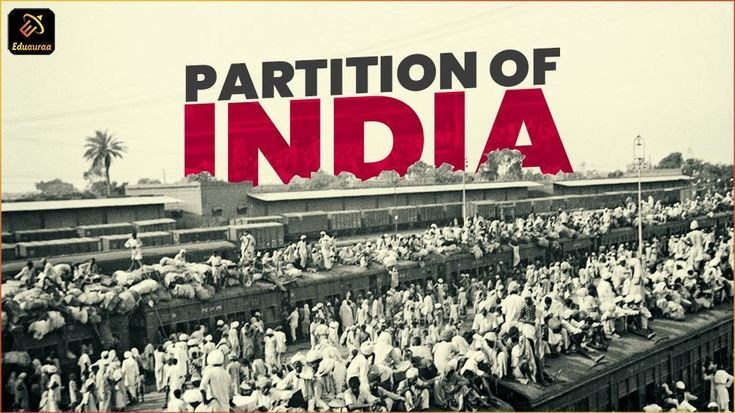
21-Apr-2025 , Updated on 4/21/2025 11:35:51 PM
Why didn't all Muslims of India leave for Pakistan at the time of partition?
Rooted in Ancestral Lands
Some Muslims decided to remain loyal to India because generation after generation of their families had been cultivating the soil of the region. Evacuating a whole population or what was termed as ‘resettlement of the population’ was not tenable, particularly of
farmers, artisans and owners of property who relied more on their ancestral homes for survival. The beliefs of individuals to their place of origin overshadowed the risk of moving to a different country. Moreover, some thought that India’s diversity of its people was their strength and not an issue at all. The general perception of rejecting age-old customs, establishments, faith institutions and social connections ruled migration as impossible for many that made their decision of staying absolute even if they would experience the impact of Partition.
Faith in Secular India
Many Muslims believed in the idea of a composite India which was being portrayed as a secular state that did not consider religion essential for the grant of citizenship. People such as
Gandhi and Nehru predicted equality and many people thought that existence was feasible. They dismissed the two-nation theory saying that religion should not be a basis for nationality. Among those who remained in Germany they encouraged tolerance as a way of integrating the two communities. For them, it was unimaginable to leave and allow the division of the society as well as betray the civil rights that they were advocating for. They remained a luminous symbol of the fact that its residents believed that unity was a bond stronger than religious divide even in post-Independence India.
Economic and Social Stability
Migration factors were very sensitive—the transfer of businesses, employment opportunities and property were a major challenge. The rich on the other hand were afraid that they might lose their properties in the events that would be triggered by the capture, while the poor for instance were immobile due to lack of resources to move. Due to prime dependence on local patronage such as, agents,
doctors, teachers and merchants who could not afford to move from one region to another. Others also had concerns of beginning something anew in an underdeveloped Pakistan with jobs being a major uncertainty for most individuals. Stability was apparently considered better than the volatility of being displaced even in the context of India’s fragmentation. The drive for the survival of the whole Bengal population trumped political or religious ideologies to focus on shelter and food during the partition period.
Fear of Violence and Uncertainty
The violent events of partition made many Muslims not to migrate from their ancestral homes due to fear of being killed. The articles covered topics such as massacres on trains and in refugee convoys, meaning the journey was lethal. Most opted to remain and possibly get killed or driven away from their homes rather than be killed. This made relocation a dangerous affair to the vulnerable grannies, women, and children, regardless of the practicing tribe. Furthermore, apathy towards the millions at the time of its creation raised questions over the provision of shelter and sources of income for the people of the new Islamic homeland. Besides, even when there is as much to gain, it is advisable to stick with what one knows because the unknown presents too many dangers. For most of them, the desire to help family and friends survive overpowered any loyalty they may have had towards Pakistan so they suffer in India.
Diverse Political and Personal Beliefs
In fact, Not all Muslims in British India supported the demand for Pakistan; some actively opposed the idea and sided with either secular or nationalist movements. Some saw
Partition as an avoidable political blunder and not as the destiny of religion as most people tend to assume. Some were Baptists, unionists, or had other religions and therefore did not form close bonds because their Southern identity was stronger than religion. For leaders such as Maulana Azad, the concept of composite culture of India was an article of faith and could not be compromised. These sub headers entail the following possible reasons for them to remain as follows: Personal convictions, regional pride, and dissent against the Muslim leagues. This was India in true sense — where faith, politics, and identity, all merged together in forms that could not be solved through migration.

Content Writer
Hi, I’m Meet Patel, a B.Com graduate and passionate content writer skilled in crafting engaging, impactful content for blogs, social media, and marketing.
Join Our Newsletter
Subscribe to our newsletter to receive emails about new views posts, releases and updates.
Copyright 2010 - 2026 MindStick Software Pvt. Ltd. All Rights Reserved Privacy Policy | Terms & Conditions | Cookie Policy